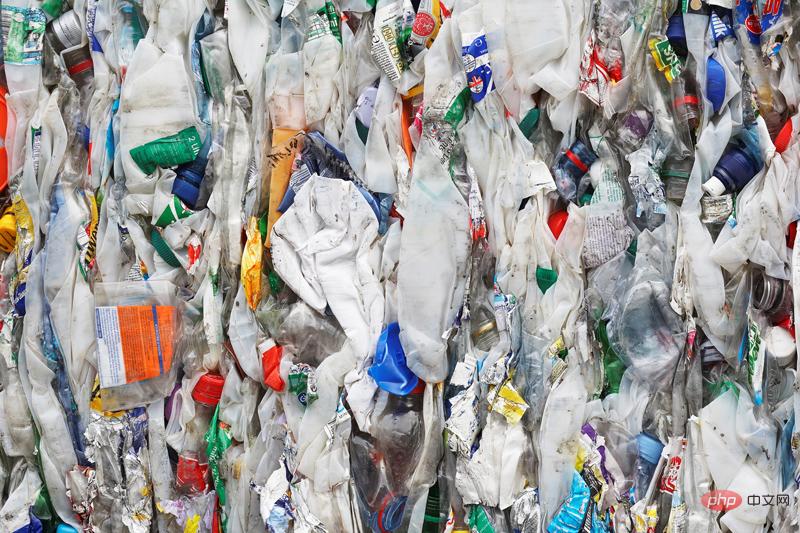Home >Technology peripherals >AI >Scientists use artificial intelligence to improve plastic recycling, distinguishing degradable plastics from traditional plastics
Scientists use artificial intelligence to improve plastic recycling, distinguishing degradable plastics from traditional plastics
- WBOYWBOYWBOYWBOYWBOYWBOYWBOYWBOYWBOYWBOYWBOYWBOYWBforward
- 2023-04-14 14:16:031220browse

News on March 14, food packaging bags, coffee cups, plastic bags..., plastics can be seen everywhere in our daily lives.
It’s just that it’s difficult to effectively differentiate between these degradable plastic products and traditional plastics in appearance. If the recycling process is not done well, it may contaminate plastic recycling and reduce efficiency.
Researchers at University College London (UCL) published a paper in Frontiers in Sustainability They used machine learning to automatically classify different types of compostable, biodegradable plastics and They are distinguished from traditional plastics.
Professor Mark Miodownik, corresponding author of the study, said: "The accuracy is so high that it could make this technology feasible for use in industrial recycling and composting facilities in the future".
IT House learned from the report that researchers used artificial intelligence to classify plastic materials between 5mm times 5mm and 50mm times 50mm.
The traditional plastics tested in this test are mainly made of PP and PET (mainly used for food containers and beverage bottles); the compostable and biodegradable plastic samples are mainly made of PLA and PBAT, used for cup lids and tea cups. Bag and magazine packaging.
The results showed a high success rate: the model achieved perfect accuracy for all materials when the sample measured more than 10 mm x 10 mm. However, for sugar cane-derived material or palm leaf material with dimensions of 10 mm x 10 mm or smaller, the misclassification rates were 20% and 40%, respectively.
Looking at fragments measuring 5mm x 5mm, some materials were identified more reliably than others: for LDPE and PBAT fragments, the misclassification rate was 20%; for the two biomass-derived materials, the misclassification rate was 20%. 60% (sugar cane) and 80% (palm leaves).
The above is the detailed content of Scientists use artificial intelligence to improve plastic recycling, distinguishing degradable plastics from traditional plastics. For more information, please follow other related articles on the PHP Chinese website!
Related articles
See more- Technology trends to watch in 2023
- How Artificial Intelligence is Bringing New Everyday Work to Data Center Teams
- Can artificial intelligence or automation solve the problem of low energy efficiency in buildings?
- OpenAI co-founder interviewed by Huang Renxun: GPT-4's reasoning capabilities have not yet reached expectations
- Microsoft's Bing surpasses Google in search traffic thanks to OpenAI technology

